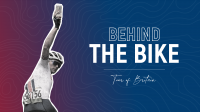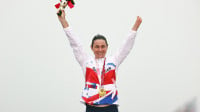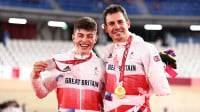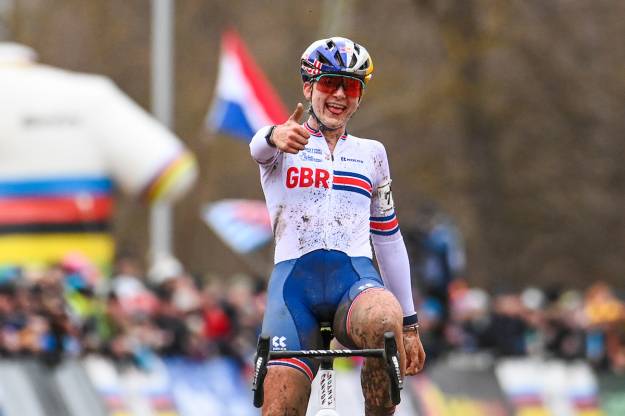“I woke up on New Year’s Day and I just had a funny feeling that things aren’t going quite right.”
Less than two months earlier David Smith had won two medals at the Manchester Para-cycling International and was starting to show the kind of form that he hoped would book him a place on the plane for the Paralympic Games in 2016.
A gold medallist in the rowing at London 2012, Smith has already undergone major surgery on three occasions after being diagnosed with a rare genetic tumour on his spinal column. In September last year, the tumour returned once more, but Smith chose to postpone surgery in order to pursue his Rio dream.
But when he woke up on 1 January at the start of what he hoped was going to be one of the biggest years of his sporting life, he had an uneasy feeling.
“I went out and did a big day and I just couldn’t get the power I wanted and had a shooting pain through my neck.”

As he returned to the track, his concerns increased. With his eye on the UCI Para-cycling Track World Championships in March, Smith had just done a big session and once again had a feeling that something was wrong.
“I just didn’t have any power,” recalls Smith.
After getting off the bike, his legs gave way and he was lying on his back at the velodrome in Manchester for more than an hour before his body recovered enough to allow him to sit up.
He then received a message from his surgeon saying that he needed to come in.
“I remember thinking this is either a massive coincidence or this is going to be bad news.”
He travelled to Oxford and his worst fears were confirmed. The tumour on his neck was growing quickly and surgery was the only option. It was a devastating blow for Smith following surgeries in 2010 and 2014 to try and deal with the same issue.

At the end of January it was agreed that the surgery would take place a month later. He spent the next month organising his affairs and training as hard as ever.
“Athletes can take training for granted sometimes and not always enjoy it. I just enjoyed training that month with no pressure. I remember thinking how many people would love to be training on the track with a Great Britain jersey on alongside so many other great riders.
“I spent that time getting my affairs in order and effectively wrote a will in London. I probably was preparing myself for the worst a little bit.”
The surgery lasted a gruelling nine hours and was a success, although when he woke up he couldn’t feel anything down his left side.
“Every time I had woken up from surgery previously I could feel things but this time I just couldn’t feel anything down the left side of my body. My old physio from rowing was with me and he just started massaging my foot and there was some feeling there.”
Now ten weeks on from surgery, he has made huge progress, but the competitive athlete side of his character still leaves him frustrated at some of things he can’t do.
“Being an athlete means I’ll probably never be happy with how I’m doing but then someone will come and see me who hasn’t seen me for three or four weeks and they’ll be amazed at the progress I’ve made.
“I think sport has helped me through this as it builds that resilience. I try and perceive every situation as a challenge and not as a threat. So many people just give up, but I think the combination of mental strength and your body being in peak condition has really helped.”
Smith is currently continuing his rehabilitation at Stoke Mandeville hospital and anticipates being there for another three or four weeks. He generally wakes at around 5am and starts his day with an hour of meditation and visualisation. He then has breakfast before doing some work in the pool, time with the physio and occupational therapy. After lunch he does more work with the physio, then is in the gym, before finishing the day with some walking exercises and drills, dinner and bed. He then repeats the process the next day.
He admits, on occasion, sometimes struggling for motivation and it is the support of his team-mates and all the messages that he has received from the general public that get him through the dark days.
“It really does help. I was having a bad morning the other day, where I just really didn’t want to get up. But the messages of support really pull me through. I had 30 letters from a primary school in Scotland and I read them and it really motivated me to get out of bed and get moving.”
Despite still having a long way to go in his recovery Smith is already dreaming of getting on the bike again and is looking ahead to 2017 and hopefully riding for the Great Britain Cycling Team again.
“My first target is just to be able to go out on the bike and ride again. Then I’ve booked a trip to the Alps later in the year and I want to get a solid winter of training in. Then, who knows.”








